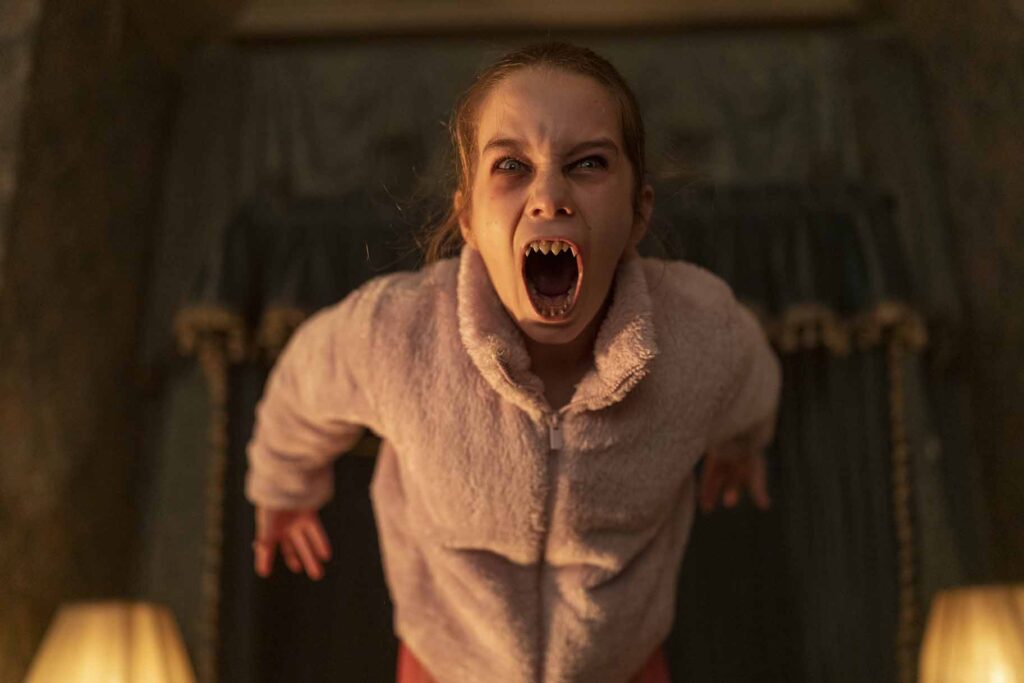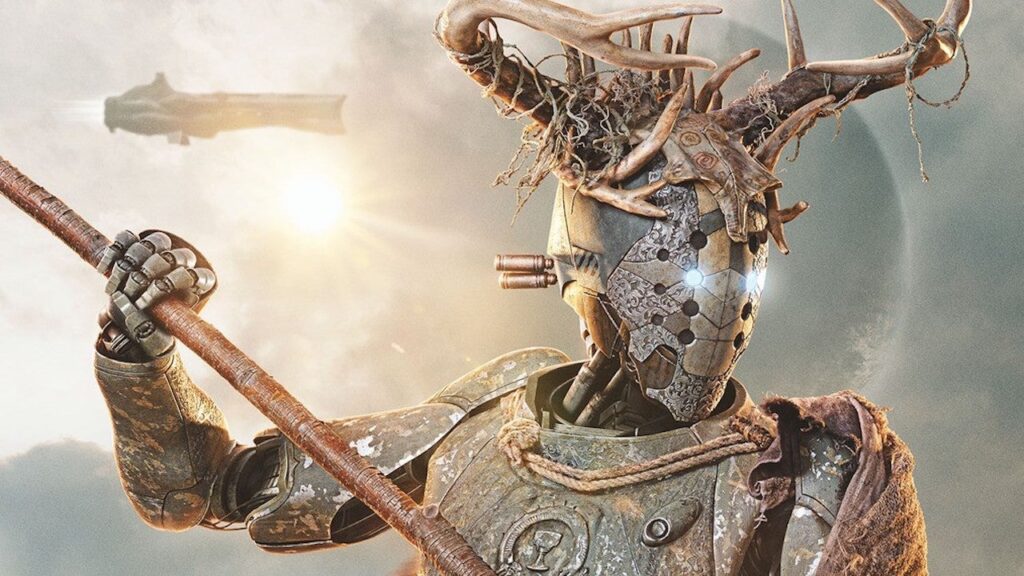
Civil War has to have one of the strangest reactions to movies I’ve seen in a long time. Every day that goes by, its RT review score drops another percentage point. And yet, with this weekend’s box office win, it has become A24 and Alex Garland’s best first-2-weekends release ever.
The film (11 mil this weekend) is fighting a war on two fronts. One, it’s promoting itself as something bigger than it is. So everyone who sees it can’t help but be let down. And two, the elite progressive crowd, which is independent film’s primary audience, is mad that it doesn’t take more shots at conservatives. The Hollywood Reporter was so angry about this, they needed to get it off their chest.
Either way, I think it’s cool that an indie film is causing such a stir. I was just lamenting the fact that we don’t have enough conversational pieces in cinema these days. You had Barbie last year. But that was an outlier. Before that, it had been a while.

Abigail’s lower-than-expected box office (10 mil) continues to prove how elusive the target is in the horror movie space. Horror seems easy from the outside (and to be fair, I believe it’s the genre most forgiving of bad writing) but finding that concept that excites people enough to drive them to the theater is, as always, elusive. Audiences will keep you humble. There are no slam dunks except for sequels, as Steven Spielberg famously said.
The trailers for Abigail were less scary and more campy. I always get nervous when writers mix comedy with horror. Being scared is something everybody agrees on. If something is scary, we’re all on board. But comedy? Whatever half of the audience finds funny, the other half is guaranteed to find stupid. So you’re lowering the chances that your script/movie will connect.
This is why movies like Renfeld and Lisa Frankenstein land with a thud. I think when people go to a horror film, they want horror. It’s not like comic book movies, which organically have a lane for comedy. This genre mash-up had its heyday back in the 80s, with franchises like Leprechaun and Child’s Play, and I think that’s because it was a campier time. Audiences are less forgiving of campiness these days, probably due to the 50x cynicism power-up that the internet has injected into our souls.
But that cynicism has been delightful for the movies that deserve it. And there is no movie released in the last decade that deserves a bigger cynical take than Rebel Moon Part 2. I mean, this movie, guys… I put this movie on and just stared, frozen in place, with my jaw on the floor. I would’ve turned it off if I hadn’t been so confused about how a movie this bad could’ve been made.
 There is not a better image to represent this movie. Everybody is perfectly framed. They all have cool expressions on their faces. They’re shooting in slow motion. Hair, makeup, and wardrobe have all been adjusted to the millimeter. And yet we don’t care one bit what’s happening because the story that led up to this moment failed to create even an iota of compelling drama.
There is not a better image to represent this movie. Everybody is perfectly framed. They all have cool expressions on their faces. They’re shooting in slow motion. Hair, makeup, and wardrobe have all been adjusted to the millimeter. And yet we don’t care one bit what’s happening because the story that led up to this moment failed to create even an iota of compelling drama.
First of all, can we all just take a deep breath and THANK THE LORD that Snyder wasn’t able to convince Kathleen Kennedy to make this a Star Wars movie? Holy Jesus, thank you thank you thank you. Star Wars may be in a rough spot now. But this would’ve been like sticking 50 wooden stakes into the franchise’s vampiric chest.
While the film has its baffling share of bad directing choices (namely that 89% of the movie is presented in slow motion for reasons the most brilliant scientists in the world would never be able to figure out), it’s the screenwriting that does the film in. If you don’t have a story to build your directing around, it won’t matter what you do. And this script makes mistake after mistake after mistake.
Right off the bat, there is zero originality within any of the science fiction choices. I see this all the time in weak sci-fi scripts. The choices appear out of thin air. There is no thought behind them. No history. No mythology. No specificity. They amount to the writer thinking, “This would look cool on screen” and that’s it. That’s the only basis behind the choice.

There is this robot in the movie with animal horns on its head. Why? No clear reason! Just… “animal horns on a robot would look cool,” which may be the singular sentence that defines Zack Snyder. What makes science fiction awesome IS the world-building. We need to sense that there’s a deep rich history in this made-up universe for it to resonate, for it to feel real. And if you’re just basing all your choices on, “Oh, that would look cool,” it will come across as paper-thin to audiences.
If you look at characters like C-3PO and R2-D2, not only do these robots serve functional needs in this universe (one is a protocol droid capable of communicating with the vast number of alien languages throughout the galaxy and the other is an astromech pilot droid) but they have rich detailed history, having been through numerous wars before we meet them (namely the Clone Wars), all of which George Lucas knew in the very first draft of the script.
A classic screenwriting error is to believe that your character only exists the second they’re introduced in your movie. While I’m sure that Zack Snyder would argue that he knows all sorts of backstory about his hero (somebody named “Kora”), I can assure him that however much backstory work he’s done, it is a fraction of what needed to be done. This main girl who lives on some farm and hoes wheat or whatever she does… 98% of what Snyder knows about the girl is in how he envisioned her looking. She had a cool angular face that would look killer in all of the slow-motion action scenes he planned on filming.
Or there are moments like when Snyder has his version of Han Solo encased in some webbing version of carbonite with multiple tubes running red and blue fluid into his body. I would be willing to bet my life that Snyder has no idea what those tubes are or what the liquid within them does. I know this because there is zero logical or visual consistency between what the character is encased in (webbing) and what those tubes are doing. Again, it comes down to Snyder thinking, “Red and blue tubes! That would look cool!!” That’s it! That is the only criteria for a creative choice in Rebel Moon. The irony is that if you argue that “knowing what looks cool” is Snyder’s lone talent, he fails at it more than he succeeds!
So how did this happen? How did two movies that are this terrible – movies that cost an enormous amount of money – get made in the first place? The answer is simple: Netflix doesn’t develop. Or, if they do, the notes they give aren’t mandatory. They are suggestions. And when they hire these big names (They brought Snyder into their fold when he was at his professional peak, after the Snyderverse), they give them total power. Anything they want to do, they let them do.
Ideas are like people. If you don’t challenge them, they can’t grow. They can’t become bigger and better versions of themselves. It is beyond clear to me that not a single creative decision in this entire screenplay was challenged. I’d even go further. I would bet that nobody at Netflix even read the script. How could they? Nobody who can call themselves a creative read this script and thought it was anything other than abysmal and needed mountains of rewrites.
It is the curse of being successful. People start trusting you too much. And you believe they’re right. Recently, Ridley Scott expressed frustration about the fact that, even at this stage of his career, with all of the success he’s had, people still constantly challenge him during the filmmaking process. At first, I thought that sucked. “He’s earned the right to do what he wants!” I screamed at my computer.
But after watching Rebel Moon Part 2, I’m reminded how important it is that every creative choice be challenged. Being forced to defend why you made the choices you did allows you to see just how strong they are. Because it’s usually during a defense when you realize that a choice has no legs. “No, cause see, the reason for that is that he has that power… well, he doesn’t have it yet but… oh, I forgot, cause when he was young? He once had a vision — I had that in an earlier draft, I need to put it back in — so then, see, when you know that, you realize that he has this special power… which I know is actually two powers, flying and super-strength, but I explain the flying later on, and that’s why it makes sense that he can do these things.” You can feel yourself stumbling over your defense as you explain it and that’s when you go, “You’re right. I need to fix this.” Again, if there’s no struggle, how can the best choices rise to the top?
I do understand Snyder on some level. For directors, they want to get behind the camera. Cause that’s where the movie’s made. It’s annoying sitting in a room and trouble-shooting script problems then waiting weeks or months for the writer to fix everything. But when you don’t do that, this is the movie you get. This is a first draft movie. It is a piece of garbage with no dramatic thrust, with no true reason to keep watching. And now you’re the butt of a joke. You’re Battlefield Earth. When you could’ve avoided that by doing the hard work and actually getting the script taken care of. It drives me nuts! But this is a problem I’ve learned that many in Hollywood will always make.

